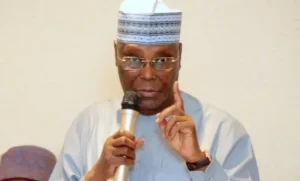Nigeria’s hope of reaching the 2026 FIFA World Cup came to a painful end after the Super Eagles were defeated by DR Congo in the playoff clash. The result shocked many fans who believed the team had enough quality to secure the ticket. The match exposed issues that have been building for months, offering important lessons about the current state of Nigerian football.
First, the game showed that the Super Eagles still lack a clear playing style. Throughout the match, the team struggled with coordination, creativity, and consistency. DR Congo looked more organised, while Nigeria relied heavily on individual brilliance rather than teamwork. This highlighted the need for a stronger tactical identity under consistent coaching.
Second, the defeat revealed Nigeria’s poor conversion of chances. Despite having moments of pressure, the attackers failed to make their opportunities count. Missed chances in big games often come back to haunt teams, and this match was no exception. The lack of clinical finishing was a major factor in the loss.
Third, DR Congo proved that hunger and discipline can defeat talent. Their players showed greater determination, physicality, and commitment from start to finish. Nigeria, on the other hand, appeared sluggish in key moments. This difference in attitude played a major role in deciding the outcome of the tie.
Lastly, the loss reminded Nigerians that football development needs urgent attention. From grassroots training to strategic planning at the national level, the country must rebuild its football structure if future results are to improve. The exit from the 2026 World Cup qualifiers is a wake-up call for administrators, players, and fans.







